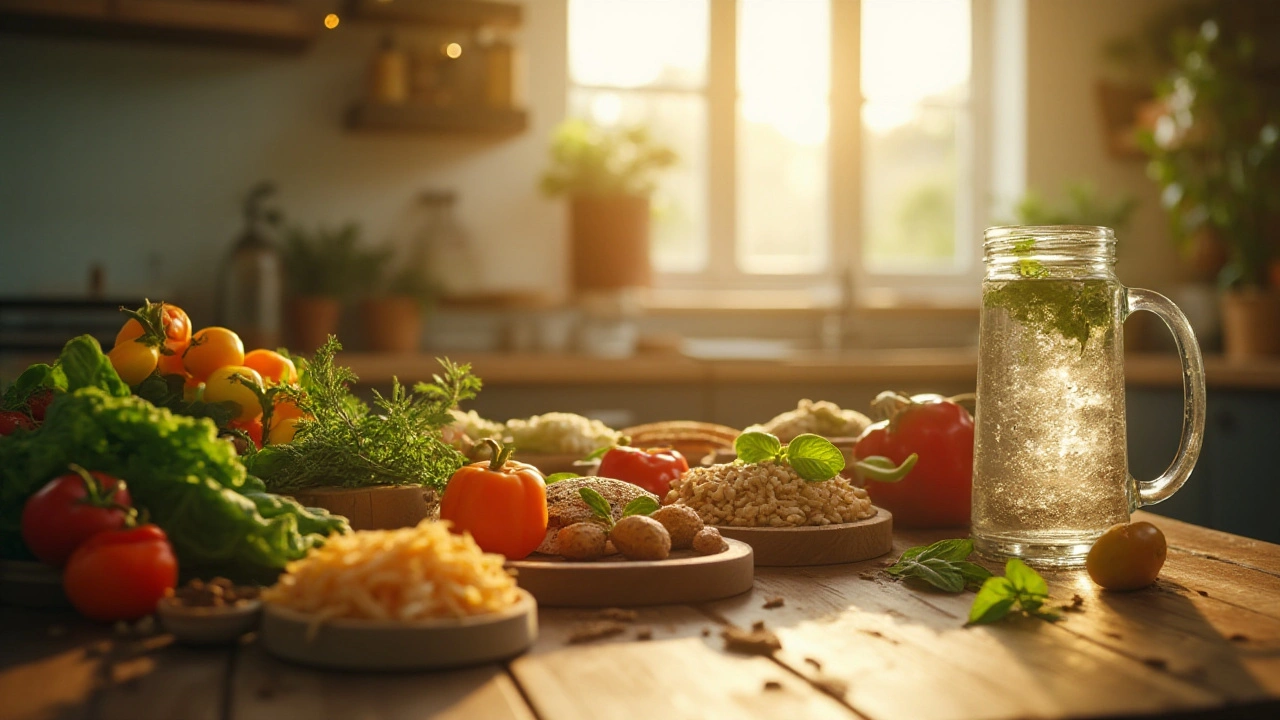Digestive Tips: Simple, Practical Steps You Can Use Today
Bloating, slow digestion, and irregular stools waste energy and ruin your day. You don’t need extreme diets or fancy supplements—small habit changes work fast. Below are straightforward tips you can try right away, plus quick fixes for common problems.
Daily habits that help digestion
Chew slowly. Aim to chew food until it’s soft. Proper chewing starts digestion and cuts how much air you swallow, which reduces gas. Take breaks between bites and put your fork down between mouthfuls.
Keep a regular meal schedule. Eating at similar times trains your gut and stabilizes bowel rhythm. Avoid big late-night meals—finish eating 2–3 hours before bed to prevent reflux and overnight bloating.
Hydrate steadily. Sip water throughout the day. Too much liquid during meals can dilute stomach acid slightly for some people, so drink most of your fluids between meals. Warm water or herbal tea after a meal can help move things along.
Move after eating. A 10–20 minute walk after a meal speeds gastric emptying and lowers bloating. Gentle movement beats lying down, which can trap gas and slow digestion.
Food choices that actually help
Balance fiber—both types matter. Soluble fiber (oats, apples, carrots, beans) soaks up water and eases stool passage. Insoluble fiber (whole grains, nuts, broccoli) adds bulk and speeds transit. Increase fiber slowly over 1–2 weeks and drink more water to avoid constipation.
Include probiotics and prebiotics. Yogurt, kefir, sauerkraut, and kimchi add helpful bacteria. Foods like garlic, onions, leeks, bananas, and oats feed those bacteria. If you try a probiotic supplement, choose one with clear strain labels and a short trial period to see if it helps.
Limit common triggers. Fried foods, heavy creams, excess alcohol, and sugary processed items often slow digestion or cause gas. Carbonated drinks can add to bloating. Notice which foods bother you and cut those first.
Try small, practical fixes for constipation or bloating. For constipation: a morning glass of warm water, prunes, or a tablespoon of chia seeds can help. For bloating: peppermint tea or a short walk often eases discomfort. Increase magnesium intake moderately if you have mild, occasional constipation—check with a clinician first.
Manage stress. Digestion is sensitive to mood. Deep breathing, a short meditation, or a calm hobby after meals reduces gut tension. If anxiety or persistent symptoms are part of the picture, consider talking to a healthcare professional.
Know when to see a doctor. Seek help if you have blood in your stool, unintentional weight loss, severe or worsening pain, or symptoms that last more than a few weeks. Those can signal conditions that need testing or treatment.
Try one change this week—chew more, add one probiotic food, or walk after dinner. Small steps add up and make digestion smoother without drama.
Boosting Digestive Wellness: Essential Tips and Lifestyle Changes
Maintaining good gastro health is crucial for overall wellbeing. This article explores practical tips, simple tricks, and necessary lifestyle changes to keep your digestive system in top shape. Whether it's understanding what your gut truly needs, incorporating mindful eating habits, or identifying the importance of staying hydrated, these insights aim to empower you towards a healthier digestive journey. With a focus on natural and sustainable practices, this guide helps demystify the complexities of maintaining a healthy gut.
View More





